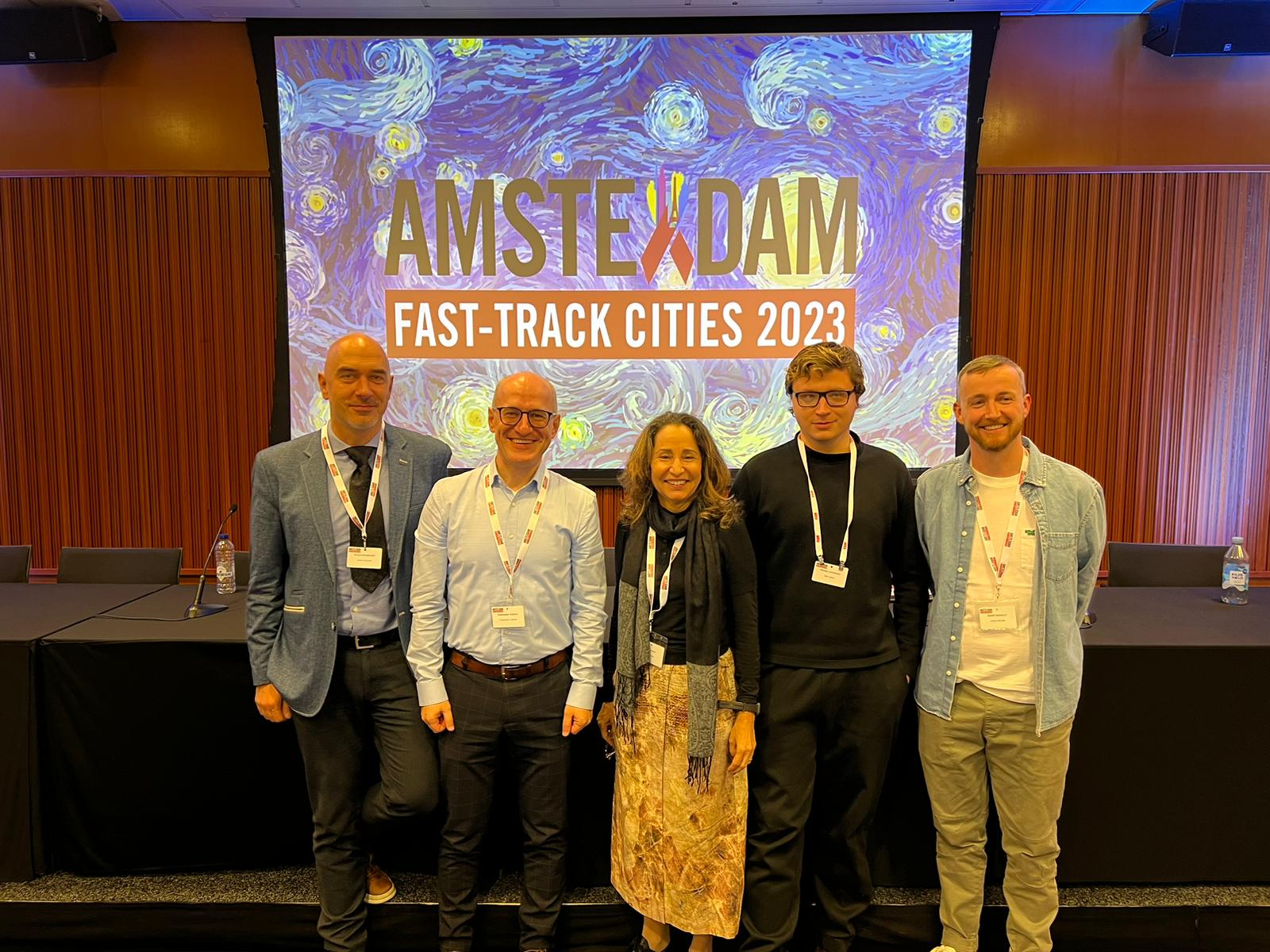On September 25-27, the international Fast-Track Cities 2023 conference was held in Amsterdam to highlight the successes of the program and share best practices in accelerating the response to HIV, tuberculosis and hepatitis C.
At the event, representatives from city delegations around the world shared their successes. Opening the conference, Femke Halsema, Mayor of Amsterdam, proudly noted that only nine cases of HIV transmission were recorded in Amsterdam in 2022, as a result of the successful work of city authorities in the fight against the HIV/AIDS epidemic.
Mykola Pavoroznyk, First Deputy Mayor of Kyiv, also shared his successes and noted that even during a large-scale war, the city is introducing innovative approaches to HIV prevention. For instance, a pilot program for the first 100 patients on the introduction of pre-exposure prophylaxis of HIV with the long-acting drug cabotegravir (CAB-LA) was launched in Kyiv in the fall of 2023. Unlike PrEP tablets, which must be taken daily or as needed, a single injection of cabotegravir is enough every two months. Ukraine is the first country in Central and Eastern Europe and Central Asia to have this option.
To share the experiences of different countries in providing pre-exposure prophylaxis (PrEP) services according to the WHO recommendations, a satellite symposium entitled “From policy to practice: integrated and differentiated PrEP services” was held on 27 September. The meeting discussed achievements and challenges in informing and counseling about PrEP, as well as strategies to facilitate access to PrEP services.
“Despite the availability of pre-exposure prophylaxis for HIV in most countries in the WHO European Region, uptake is often very slow and coverage remains very low. There are several reasons for this, including the over-medicalization of PrEP services, excessive clinical supervision, and the reluctance of potential clients from high-risk groups to seek medical care in the face of high levels of stigma and discrimination,” said session moderator Viatcheslav Grankov, from the WHO Regional Office in Copenhagen, in his opening remarks.
“A differentiated approach to PrEP service delivery focuses on the individual and the community. It adapts services to the needs and preferences of interested people who could benefit from PrEP,” said Antons Mozalevskis, WHO Headquarters, Geneva, during his presentation of the “Updated WHO guidance on integrated and differentiated PrEP readiness services”. “Differentiated PrEP service provision can also support more efficient and cost-effective use of health resources, and integrating sexually transmitted infection (STI) services into PrEP services will help ensure a people-centered approach,” he said.
Nikolai Lunchenkov, ECOM, presented the successful implementation of PrEP services in line with WHO recommendations in Central Asian countries. According to him, access to HIV PrEP has increased significantly over the past 10 years, but remains limited. Kazakhstan is the leading country in terms of the number of clients taking PrEP, despite the fact that PrEP services are financed from the state budget, and since 2023, access to PrEP has expanded at the expense of community-based organizations and through pharmacy chains.
Adam Shanley, MPOWER, HIV Ireland, spoke about the experience of introducing and expanding access to PrEP in Ireland. He noted that the capacity of sexual health services was identified as the biggest challenge to ensuring access to PrEP in Ireland, so innovative solutions included the introduction of telemedicine elements, the provision of nurse-led services, the introduction of multi-month prescriptions, and self-testing for HIV and STIs, which reduced the need for face-to-face clinic visits.
Ines Dourado, Federal University of Bahia, Brazil, shared her experience in adapting PrEP services to the needs of adolescents and young adults as part of the PrEP1519 research project. She said that demand generation strategies such as peer education, engagement through dating apps, and the first transgender chatbot, Amanda Selfie, have successfully reached young MSM and transgender women. Integrating STI services into the PrEP program was seen as an excellent opportunity to diagnose and treat STIs.
It should be noted that through panel discussions, presentations of city/municipality case studies and related events, the participants of the event were provided with a space for interactive dialogue that will further contribute to the joint development of innovative approaches to HIV and TB elimination and HCV elimination.
With the adoption in 2022 of the Seville Declaration on the Central Role of Affected Communities in the HIV Response, the conference also focused on the efforts of cities and communities to address inequality, social marginalization and stigma in order to make them inclusive, resilient and sustainable.
Fast-Track Cities 2023 is organized by the International Association of AIDS Care Providers (IAPAC) in collaboration with the Joint United Nations Program on HIV/AIDS (UNAIDS), the Accelerated Cities Institute and other partners.






